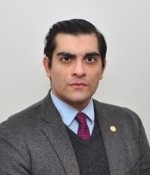How to be well prepared in today’s unstable world?
FEATURED PAPER
By Prof. Dr. M.F. HARAKE
ESLI International
Graduate School of Management & Engineering
France
Abstract
The purpose of this paper is to provide a comprehensive systematic literature review of crisis management. The study provides an insight for academicians and practitioners on the main areas of crisis management. The paper also provides a novel contribution through highlighting a new approach to crisis management by integrating a response planning process in an organization’s business contingency plan. The research also addresses a number of conceptual and managerial elements related to our studied subject such as the types of crises and the factors affecting crisis management.
Key Words: Crisis management; business contingency planning; Strategic Planning
1 Introduction
1.1 General Outline
With the evolution of technology and geopolitics on one hand and socio-economic models and public policies’ development on the other hand – the world is becoming ever more volatile, unstable, and uncontrollable. More and more organizations are becoming subjected to the effects of sudden as well as slowly progressing crises. Hence, crisis management has been gaining both momentum and considerable attention from experts to counter such a status quo.
Different crises affect societies, and this takes different forms and interpretations: cyber-attacks, natural disasters (e.g. floods, earthquakes, etc.), political, armed-conflicts, epidemic diseases, financial crises, etc. (Chong, 2004).
Accordingly, organizations confront an ever-changing environment with complex issues, difficulty in controlling the flow of data, and managing various implicated stakeholders (Strauβ & Jonkman, 2017). Also, organizations must take into account the various components of both a crises and its response dynamics (e.g. training, planning, communicating, etc.) (Pearson & Mitroff, 1993; Heath, 1995; Kothai, 2002)
In today’s socio-politico-economic development, organizations are considered as a main component of today’s global society. Organizational research has long been interested in crisis and their management. That said, such research from both an executive and empirical perspectives (Heath, 1995; Chong, 2004):
More…
To read entire paper, click here
How to cite this paper: Harake, M. F. (2024). From Crisis to Crisis Management: How to be well prepared in today’s unstable world? PM World Journal, Vol. XIII, Issue I, January. Available online at https://pmworldlibrary.net/wp-content/uploads/2024/01/pmwj137-Jan2024-Harake-From-Crisis-to-Crisis-Management.pdf
About the Author

Prof. Dr. M. F. HARAKE
Poitiers, France
![]()
Prof. Dr. M. F. HARAKE is a management Professor based in France. He is currently the Director of International Academic Affairs of GIP CEI (a French Higher Education and Research Institution). He is also the Doctorate in Business Administration (DBA) program manager of ESLI International – Graduate School of Management & Engineering (Paris – France) and the scientific director of the MBA DELIVERWEB at ALTERNIS Business School (Bordeaux – France). He previously served as a visiting professor at ESCE International Business School (Paris – France), Paris School of Business (Paris – France), Ascencia Business School (Paris – France), ESPRIT Business School (Tunis – Tunisia), GBSB Global Business School (Barcelona – Spain), etc.
Dr. M.F. HARAKE is a research fellow and former board member of the CEREGE Research Laboratory (University of Poitiers – France), and a visiting research fellow at CABMR Research Center (Paris – France). He is also an Honorary Academic Advisor and Research Scholar at the Project Management World Library (Austin / Texas – USA). He previously served as the Director of the CREFEGE Research Center (Paris – France). His research interests include Post-Conflict Public Management, Crisis and Urgent Operations Management, Humanitarian Logistics, and Project Management in Unstable Environments.
He can be contacted at mharake@gip-cei.com









